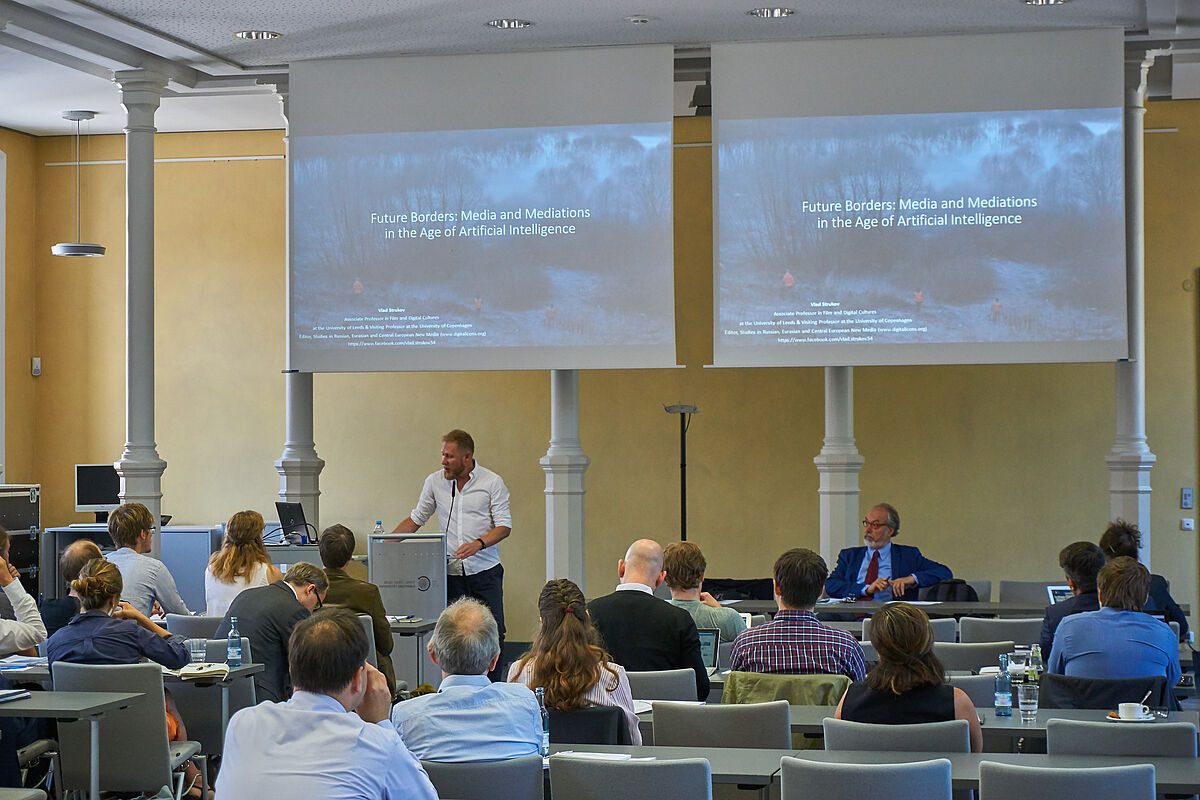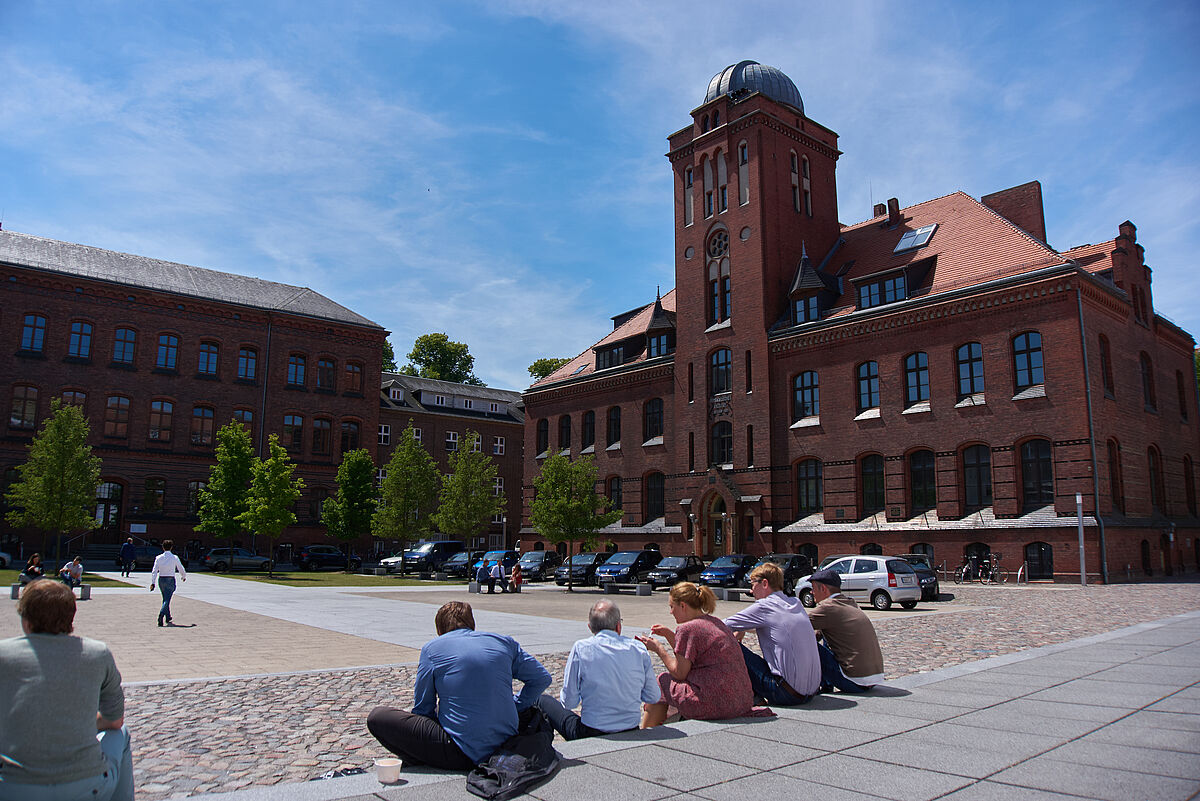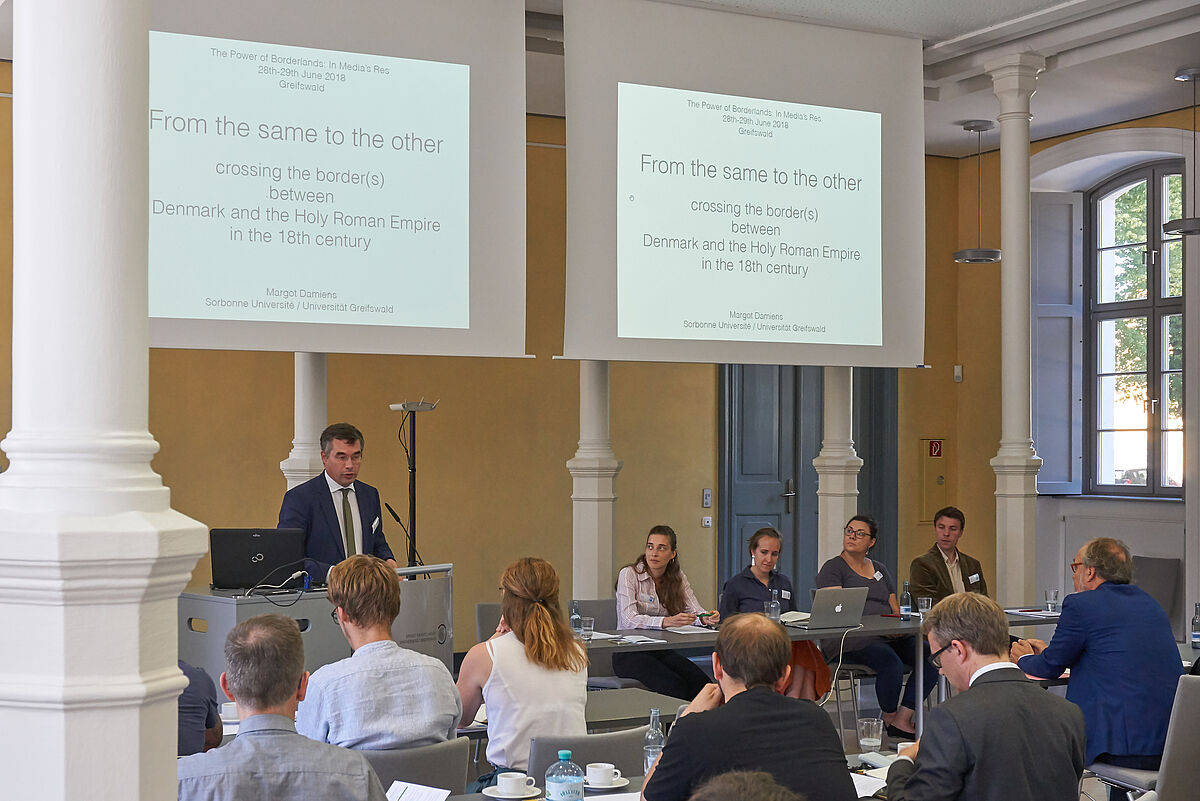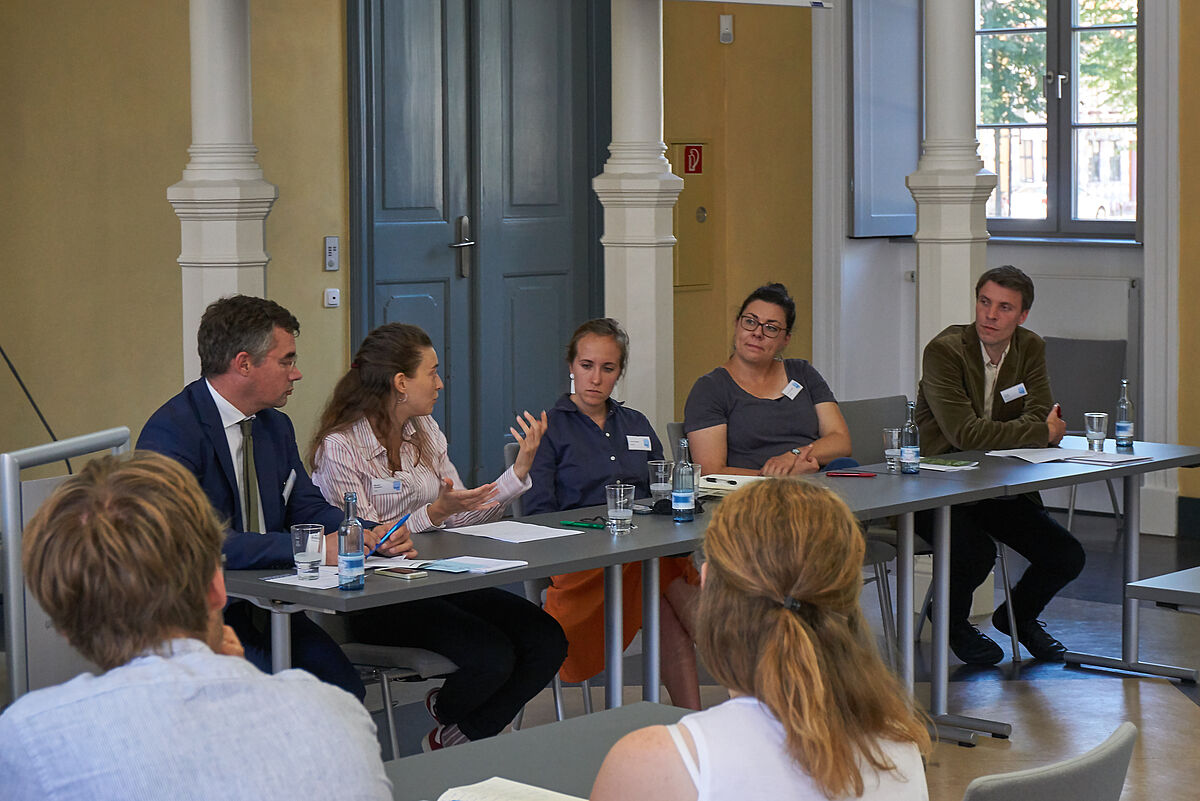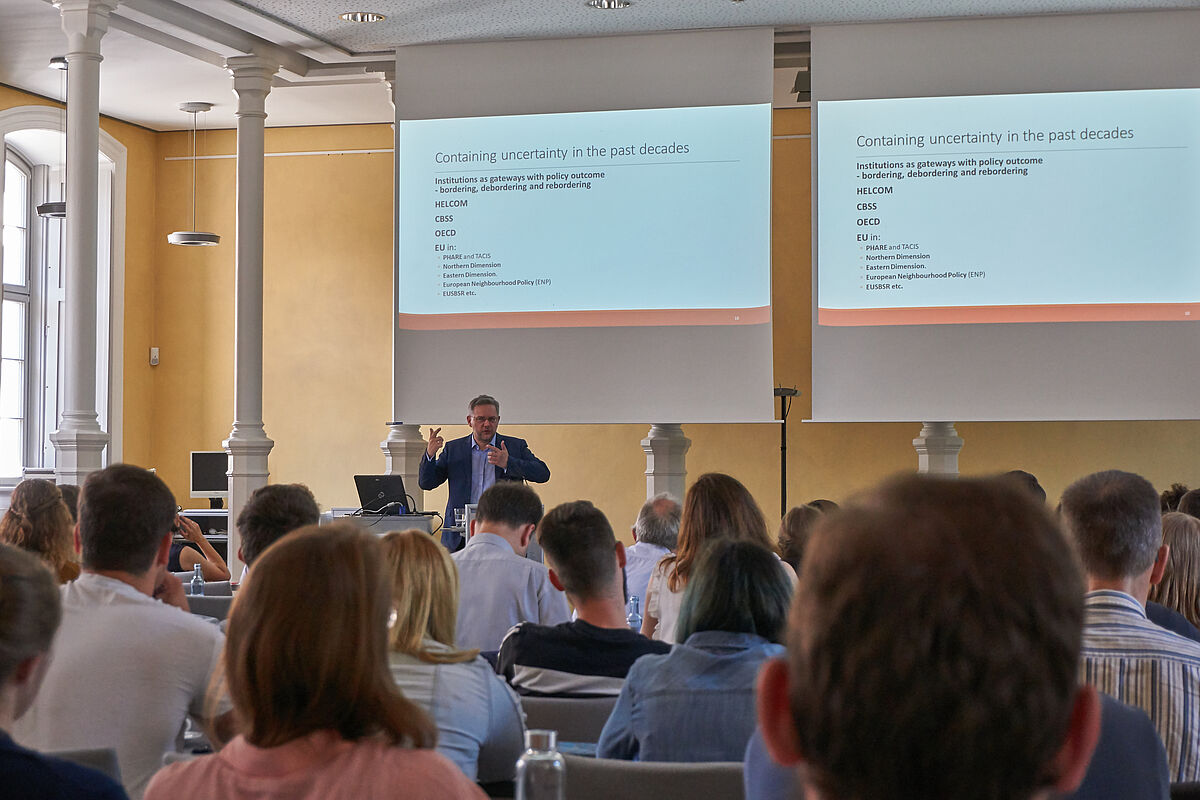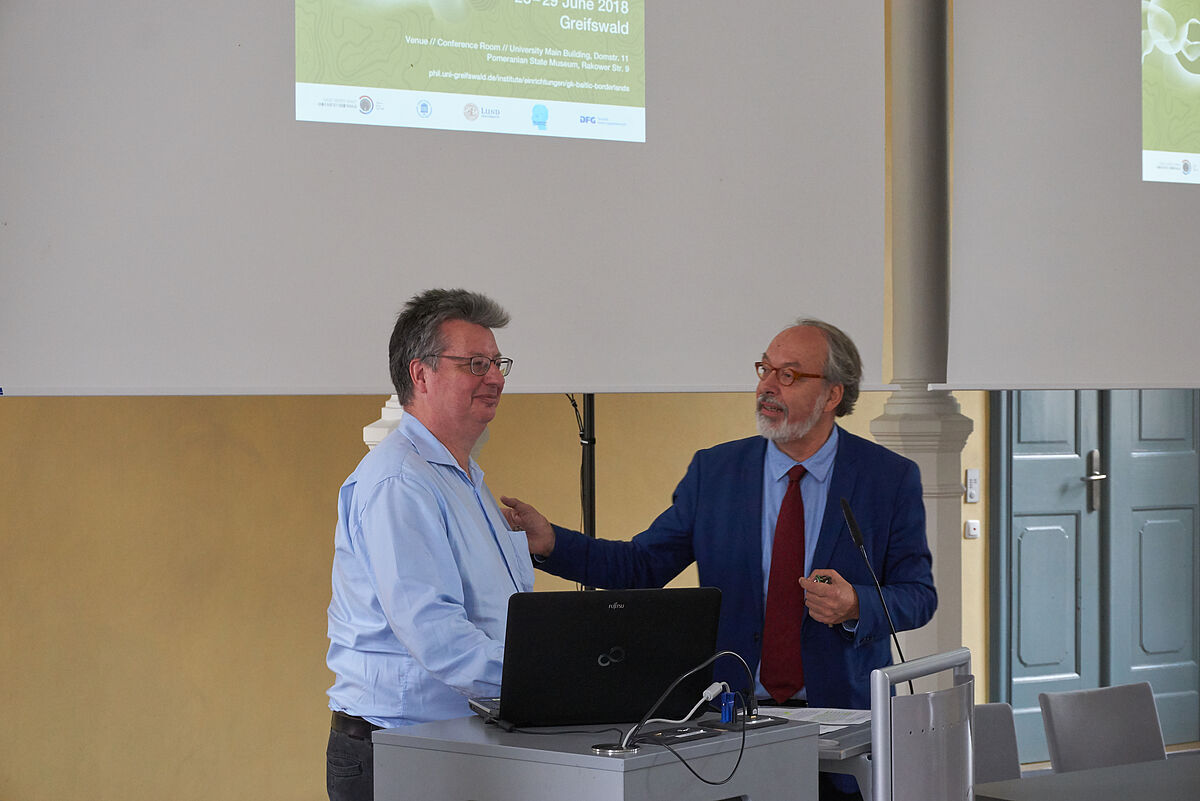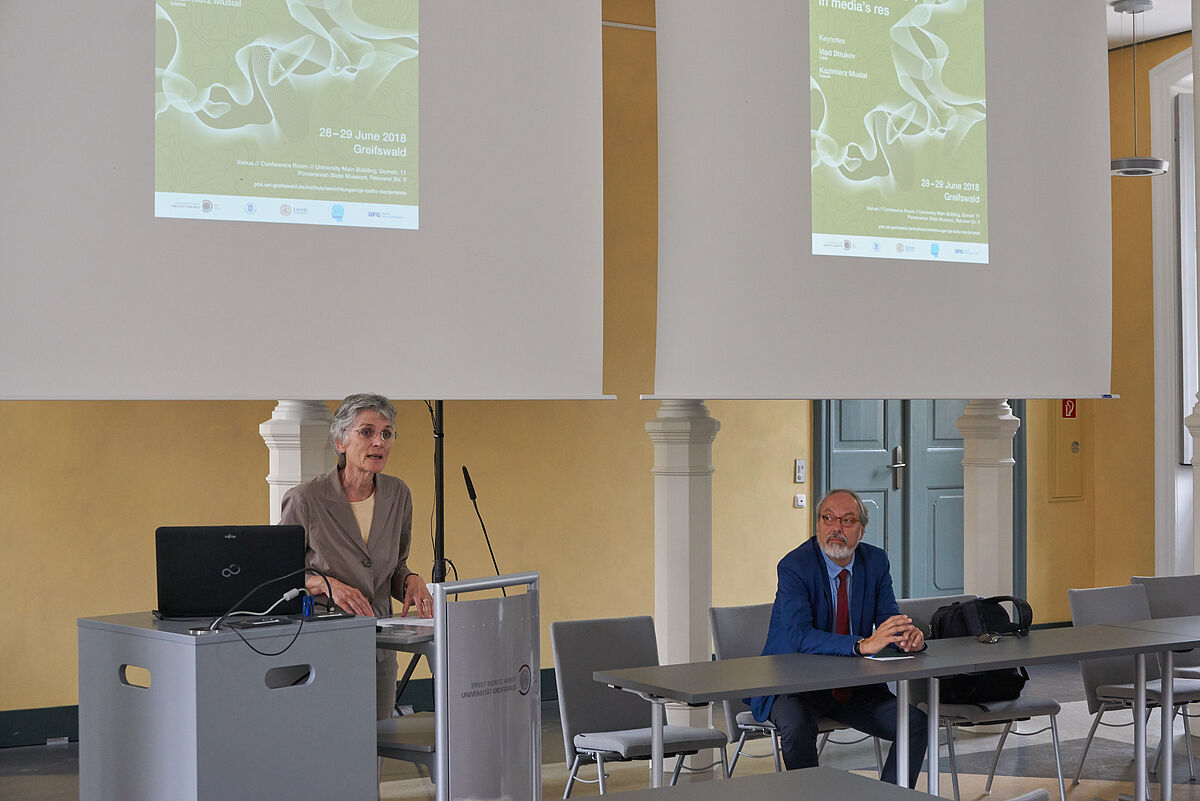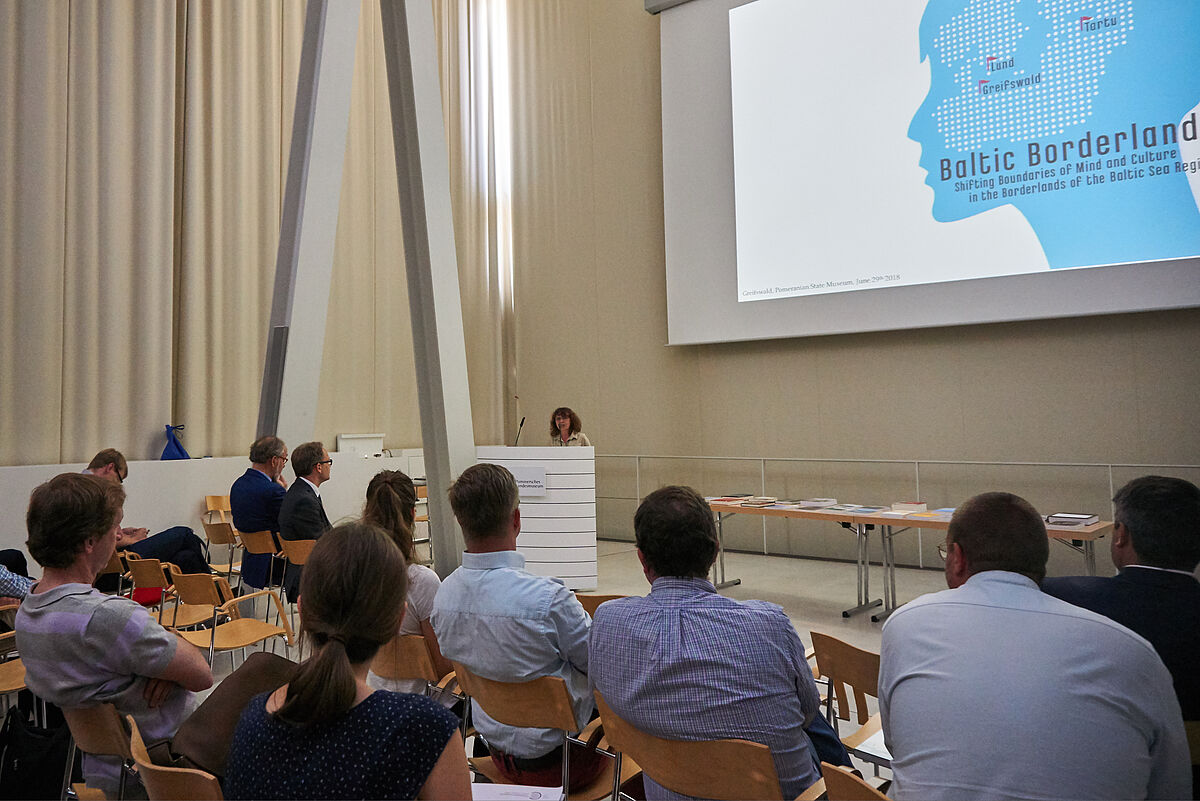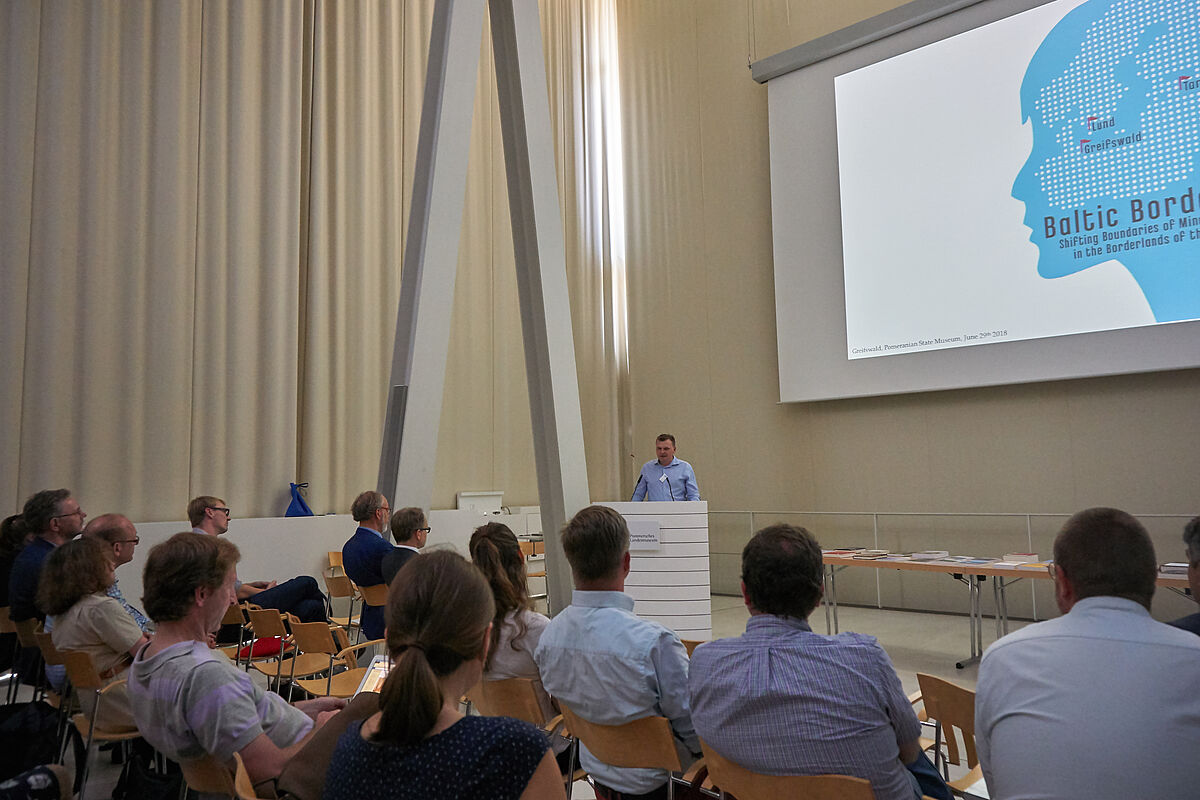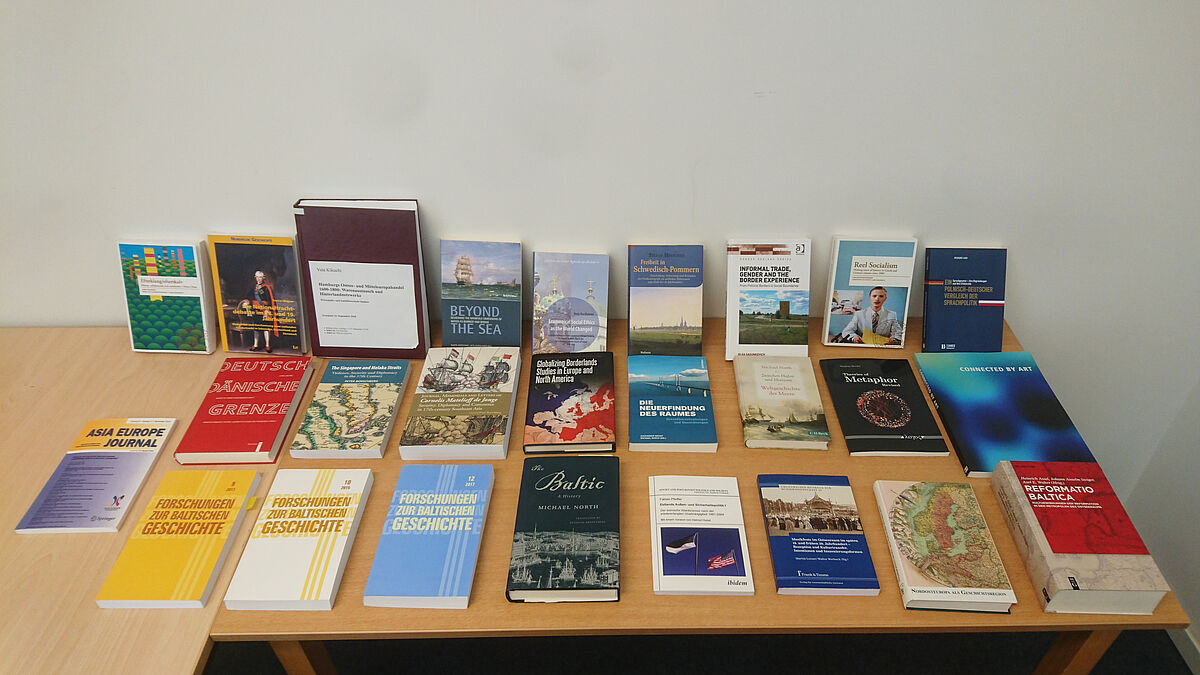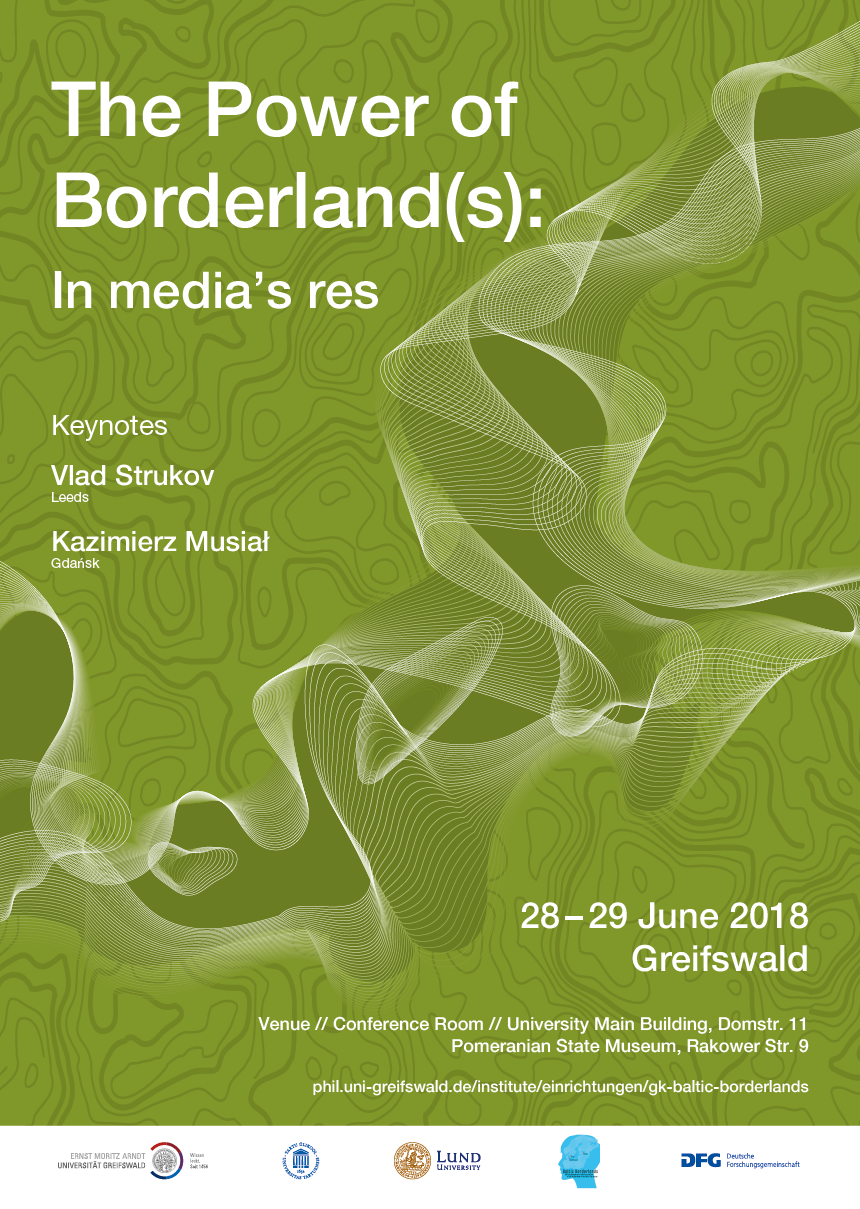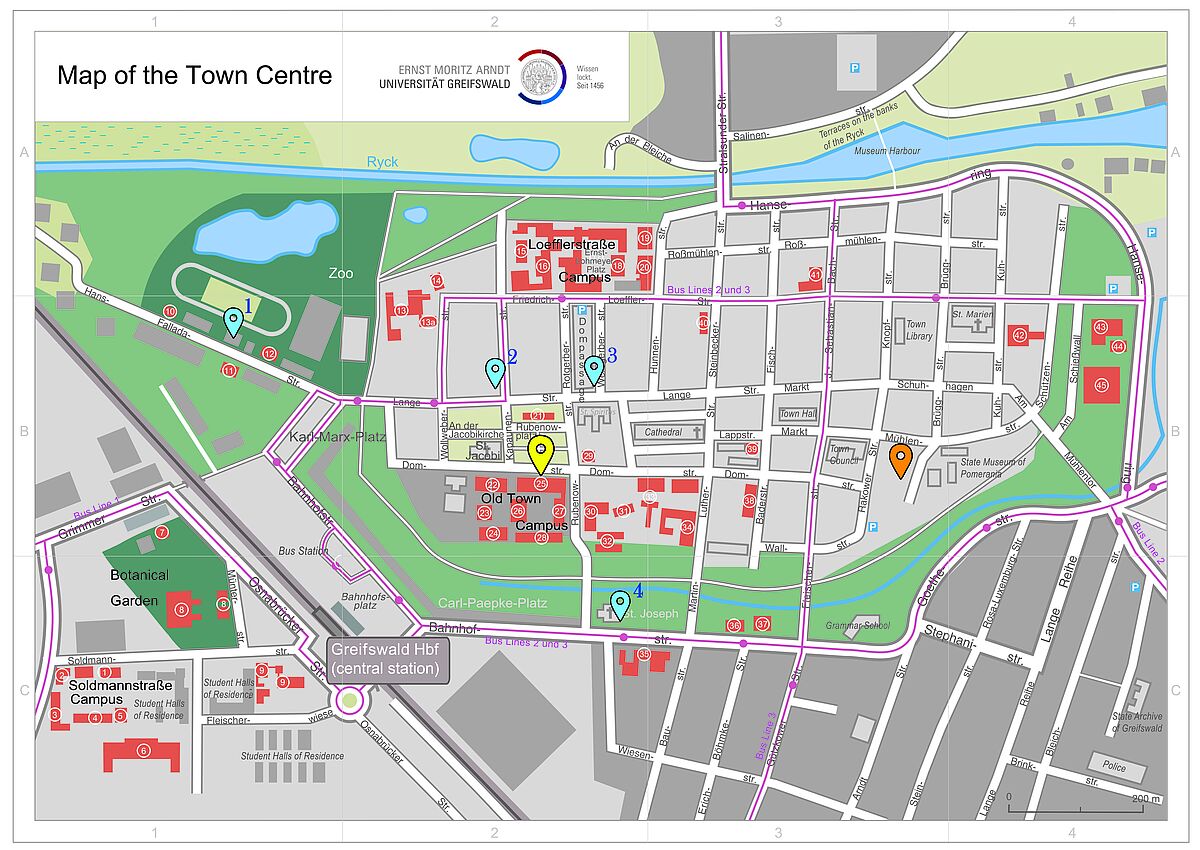The Power of Borderland(s): In Media's Res
28th-29th June 2018, Greifswald
The International Research Training Group (IRTG) “Baltic Borderlands: Shifting Boundaries of Mind and Culture in the Borderlands of the Baltic Sea Region”, a collaborative programme between the universities of Lund, Tartu, and Greifswald, will discuss the context and medialization of border crossing (or transgression) and the establishment (or dissolution) of borderlands. The panels encompass papers from the humanities and social sciences, e. g. history and art history, linguistics and literary studies, political sciences, gender studies, sociology, and digital humanities that address maps, literary texts, academic accounts, biographical notes, press media, film, digital productions and their story as well as the impact on conceptualizations of borders and borderlands.
Pekka Hämäläinen and Samuel Truett reflect in their 2011 account “On Borderlands” about the expansion of research approaches and the usefulness of the fashionable (academic) application of the borderland concept in the humanities. Although the concept had been applied with varying degrees of success, the power of borderlands as analytical tool appears already in Gloria Anzaldúa’s summary of her own stories of living in the borderland, namely borderlands exist wherever two or more cultures exist. Similarly, the observation of Etienne Balibar that “borders are everywhere” rely very much on narrativizations of experiences through different channels. These channels are particularly interesting in the context of this conference and include poetry, maps, biographical accounts and, more recently, numerous digital approaches.
Globalization supported a perspective of borderlessness beyond any containments like national, imperial or regional spaces and opened up these centrist research perspectives on spaces and orders. Spatial mobility here implies to cross borders, but does not mean to cross them out. They continue to be part of our cognitive and physical world. They remain part of our social, cultural, political and economic world making processes not only through experiences at and across the border but particularly through debates, discourses and images embedded in a multitude of narratives. We therefore ask: What happens with borders and borderlands in the narratives about times of historical and contemporary globalization? Do we cross or transgress borders? What does it mean when we use one or the other concept? Who has particular interest to present borders and borderlands in a specific way? Which media were used to disseminate ideas? Which of these choices confirm and which subvert the border? Do media and communication have an impact on these processes and hereby influence perceptions, constructions and dissolution of borders and borderlands?
Our keynote speakers will be Vlad Strukov (Leeds) and Kazimierz Musiał (Gdańsk).
Click here to open our Call for Papers.
Programme
Thursday, 28 June 2018
9.00 Keynote
Vlad Strukov
Future Borders: Media and Mediations in the Age of Artificial Intelligence
10.00 Coffee
10.15 Panel I Border Challenges
Chair: Michael North (Greifswald), Discussant Tatsiana Astrouskaya (Marburg)
Olga Dorokhina (Tbilisi)
Evolution of the Description of New Dividing Lines in Mass Media (on the Example of Georgia)
Barbara Törnquist-Plewa (Lund)
Stereotypes and Bordering - The Image of Poland in Sweden
Per Rudling (Singapore)
The Belarusian People’s Republic at 100 - Europe’s Last Government-in-Exile: Communicating Nationalism and Migrating Memory
Veronica Castillo-Munoz (Santa Barbara)
A Transnational Revolution? U.S. Investors, Rebels, and Workers across the U.S.-Mexico Borderlands
12.00 Lunch
13.00 Panel II Border Crossings
Chair: Joachim Schiedermair (Greifswald), Discussant Philipp Wagner & Franziska Sajdak (Greifswald)
Margot Damiens (Paris)
From the same to the other: crossing the border(s) between Denmark and the Holy Roman Empire in the 18th century
Linda Kinstler (Berkeley)
The Phenomenology of the Contact Line
Claire M Massey (Greifswald)
Proclamation! Poetry as Resistance in the US Mexico Borderlands
14.30 Coffee
15.00 Panel III Border Exhibitions
Chair: Michelle Facos (Bloomington IN), Discussant Stefanie Schuldt (Greifswald)
Alexander Schwanebeck (Cologne)
African Americans in Contact Zones. US-Museums and Representations of 19th Century South-western Borderlands
Kamil Bembnista/ Thorsten Heimann (Erkner)
Discursive Borders and the Construction of Memory. Different Orders of Knowledge in Slubice and Frankfurt(Oder) 20 years after the Odra Flood from 1997
Andrey Makarychev (Tartu)
Narva as a Cultural Borderland: From the 1993 Referendum to the 2024 European Cultural Capital
19.00 Conference Dinner at Hermann
Friday, 29 June 2018
9.00 Keynote
Kazimierz Musiał (Gdańsk)
10.00 Coffee
10.15 Panel IV Mediating Borders
Chair: Margit Bussmann (Greifswald), Discussant: Martin Kerntopf (Greifswald)
Mykola Makhortykh (Amsterdam)
Charting the conflicted borders: Narrating the conflict in Eastern Ukraine through digital maps
Dmitry Savchenko (St. Petersburg)
The border between Russia and Belarus: cross or transgress
Paweł Migdalski (Szczecin)
Polish Border Posts on Oder River. Symbolic View of Polish-German Border in Pomerania during Polish People's Republic Period
11.45 Lunch
12.30 Panel V Depicting Borders
Chair: Cynthia Osiecki (Oslo), Discussant: Marta Grzechnik (Gdańsk)
Kari Alenius (Oulu)
The "Wild East" of Estonia. The New Border Areas Depicted by the Estonian Media, 1918-1940
Małgorzata Dąbrowska (Szczecin)
The Loss of the Lubusz Land in the Middle Ages as Narrative of Constructing the Post-war Ziemia Lubuska
Anti Selart (Tartu)
Humble and despised Latvians. The Chronicle of Henry of Livonia and the good and evil peoples in Livonian history
14.00 Final Remarks
Peter Borschberg (Singapore)
Reception at the Pomeranian State Museum
15.00 Baltic Borderlands - Nine Years PhD-Research in and about the Baltic Sea Region
Career Talks
Heta Hurskainen (Joensuu), Theology
Olga Sasunkevich (Gothenburg), History and Gender Studies
Cynthia Osiecki (Oslo), Art History
Stefan Herfurth (Leipzig), History
Tatsiana Astrouskaya (Marburg), Philosophy and History
17.00 Reception Food and Wine
Conference venue:
Conference Room, University Main Building
Domstraße 11
D-17489 Greifswald
Pomeranian State Museum
Rakower Str. 9
D-17489 Greifswald
Click here to download the map and the legend. (pdf)
Travel information
Welcome to the city of Greifswald!
The University of Greifswald is one of the oldest tertiary education institutions in Germany and the Baltic Sea Region. Founded in 1456, it is also the oldest Swedish university, as the region was ruled by the Swedes after the Thirty Years’ War and up until 1815. Today, the University of Greifswald is aware of its tradition and has become a modern University beside the Baltic Sea with approximately 220 professors and 10.000 students. These come from all over Germany and from more than 90 countries from across the world.
Greifswald is known as a town with short distances, in which you will find intensive and personal relationships between teaching staff and students.
For more information about Greifswald, click here.

